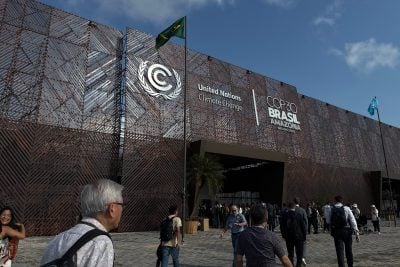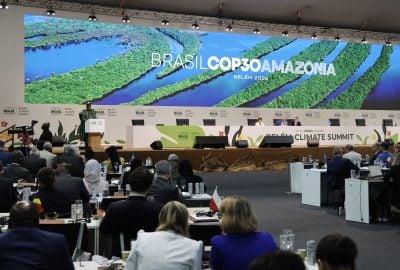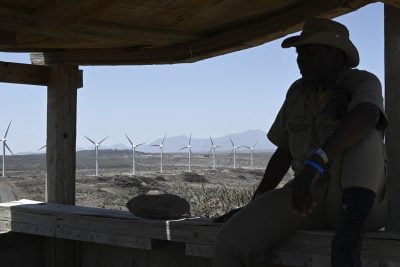In 2019, Iya Halimah, a middle-aged woman who sells soup ingredients at her small shop in Tanke, Ilorin, joined the wave of Nigerians jettisoning unclean cooking fuels such as firewood and charcoal. Instead, she embraced LPG – liquefied petroleum gas – a less harmful and faster alternative that was then more affordable.
“Gas was cheaper and faster so I found it easy to stop using charcoal and firewood. When I put food on it, it cooks up quickly and I do not have to wait for long. I used to buy the full 3kg for my cylinder,” the mother of three says.
Three kilos was enough to see her through daily cooking for around three weeks. But two years later, Halimah is abandoning gas and returning to cooking with charcoal.
While it remains clean and fast, the rising cost of LPG is making the gas unaffordable for Halimah and many others. At the start of the year, a kilo could be bought for 300 Nigerian naira ($0.73) – today it tops N800 in some places.
The cost of 12kg of LPG rose from N4,515 ($11) in September 2020 to N6,165 in September 2021, according to Nigeria’s National Bureau of Statistics. Halimah says that she does not have enough money to buy gas.
“The last time I bought gas was when it became N650 [per kilo] and that is about two months ago now. So I thought about everything and I started cooking with charcoal again because gas has become too expensive. In the past, my husband could give me N1,000 and that would be enough but now, that cannot even feed us for a day.”
Writing in Nigeria’s Premium Times, policy expert Dakuku Peterside says that even though it has the world’s ninth largest LPG reserves, Nigeria only obtains a little over a third of the 1.3m tonnes annually required for the domestic market from its majority state-owned liquefaction company, the Nigeria LNG. The country has to make up the shortfall through imports.
The problems for Nigerian consumers are exacerbated by the weakness of the naira against the US dollar, increasing global prices, and the reintroduction of a 7.5% federal tax on LPG importation in a bid to spur domestic production, he says.
The environmental cost
Climate activists fear that the spiralling costs of LPG will lead millions of Nigerians to revert to wood and charcoal, which are major sources of greenhouse gas emissions and contributors to deforestation.
Tracking SDG 7: The Energy Progress Report, jointly compiled by the International Energy Agency, the International Renewable Energy Agency and the World Bank, found that on average between 2014 and 2018, 173m Nigerians lacked access to clean fuel, putting the country third in the world behind India and China.
Just 7% of Nigerians were said to have access to clean cooking fuels. In recent years, efforts to persuade citizens to buy LPG had become more effective – but the price rises put that progress in danger.
“It truly is bad for the country,” said Olasupo Abideen, a climate activist and gas retailer speaking from the conference halls of Cop26, the international climate conference in Glasgow.
“This is at a time where we are trying to campaign for a cleaner form of energy, trying to encourage people to adopt gas as cooking fuel. It means low income users will no longer have access to a clean form of energy and all our efforts from the last three to four years trying to correct the misconception and make people adapt to LPG are going down the drain.
“If the government is committed to something, it should not use its action or policy to affect such plans.”
Aside from its effect on the global climate – dirty cooking fuels account for approximately 2% of global carbon emissions, equivalent to annual air travel emissions – dirty fuels can also have disastrous health effects that disproportionately affect women as a result of their traditional role preparing food for households.
Pollution from the use of dirty fuels contributes to heart disease, strokes, cancer and pneumonia. Over 98,000 Nigerian women die annually from the use of firewood, according to the World Health Organisation.
“Respiratory problems, skin cancer, eye problems, food poisoning, and threats to women’s safety result from overexposure to unhealthy cooking fuels,” says the UN Framework Convention on Climate Change, which is involved in a project to increase the use of ethanol gel in cooking for poor Africans.
What are the solutions?
In his Premium Times article, Peterside argues that government must step in to regulate the market and keep prices down given the importance of gas to millions of Nigerians: “The price spike must not be allowed to continue. Government should take deliberate policy and regulatory steps to check the rising cost of gas.”
Yet there are few quick solutions to the crisis. Globally, The Clean Cooking Alliance estimates $4bn is required annually to ensure universal access to cleaner options of cooking by 2030. Population growth is outpacing the number of people gaining access to clean cooking by four times.
Nigeria has long failed to refine its valuable oil and gas locally, leading to a long-term dependence on imports even as it ships its own resources abroad.
The long-awaited Dangote oil and gas refinery, one of Africa’s largest planned refineries, is expected to produce 290,000 tonnes a year of propane/LPG when fully operational, but is not expected to start producing until next year after substantial delays.
Until large refineries are ready to produce locally, import controls and taxes are likely to only put gas beyond the reach of many.
A repeal of the import tax could be considered in the meantime to ease supply disruption, says Abideen.
“The first solution is for the government to find a way in which Nigeria is going to be refining its own gas. Number two is for the government to remove the VAT that has been imposed on the LPG industry, solve the problem with dollars and democratise LPG, because demand outweighs supply and scarcity ensues in such a situation.”
Want to continue reading? Subscribe today.
You've read all your free articles for this month! Subscribe now to enjoy full access to our content.
Digital Monthly
£8.00 / month
Receive full unlimited access to our articles, opinions, podcasts and more.
Digital Yearly
£70.00 / year
Our best value offer - save £26 and gain access to all of our digital content for an entire year!

 Sign in with Google
Sign in with Google 



